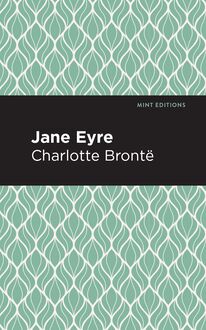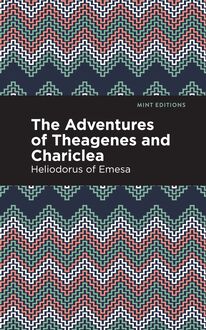-
 Univers
Univers
-
 Ebooks
Ebooks
-
 Livres audio
Livres audio
-
 Presse
Presse
-
 Podcasts
Podcasts
-
 BD
BD
-
 Documents
Documents
-
- Cours
- Révisions
- Ressources pédagogiques
- Sciences de l’éducation
- Manuels scolaires
- Langues
- Travaux de classe
- Annales de BEP
- Etudes supérieures
- Maternelle et primaire
- Fiches de lecture
- Orientation scolaire
- Méthodologie
- Corrigés de devoir
- Annales d’examens et concours
- Annales du bac
- Annales du brevet
- Rapports de stage
La lecture à portée de main
Vous pourrez modifier la taille du texte de cet ouvrage
Découvre YouScribe en t'inscrivant gratuitement
Je m'inscrisDécouvre YouScribe en t'inscrivant gratuitement
Je m'inscrisEn savoir plus
Vous pourrez modifier la taille du texte de cet ouvrage
En savoir plus

Description
The Love of Clitophon and Leucippe is an ancient Greek romance novel by Achilles Tatius. Considered an important predecessor to the modern novel, The Love of Clitophon and Leucippe has served as a model for such writers as Eusthathius Macrembolites and Alonso Nuñez de Reinoso. The novel remains central to scholarship regarding the tradition of Greek romance novels written within the vast Roman Empire, and has been translated into numerous languages throughout the centuries. Of particular interest is its uncommon usage of first person narration, as well as its employment of ekphrasis and mythological digressions, formulas now commonplace, albeit in varying ways, within modern novel writing. Clitophon is a young man engaged to be married to his half-sister, Calligone. When his distant cousin Leucippe comes to Tyre to visit family, however, Clitophon finds himself hopelessly in love with her. As his wedding day approaches, Clitophon struggles with whether to commit to his vows or follow his wayward heart. Before he can decide, however, a man intending to kidnap Leucippe accidentally takes Calligone to Byzantium instead, where she is forced into marriage with Kallisthenes, her captor. No longer tied to his vows, Clitophon pursues Leucippe, with whom he elopes after a period of rejection from her mother. Sailing from Tyre, they are shipwrecked during a violent storm. Washing up on the coast of Egypt, Clitophon is rescued while Leucippe is captured by a group of bandits who resolve to sacrifice the young maiden. The Love of Clitophon and Leucippe is a story of love at first sight, of trial and error, and the lengths to which lovers will go to live with and for one another. With a beautifully designed cover and professionally typeset manuscript, this edition of Achilles Tatius’ The Love of Clitophon and Leucippe is a classic of ancient Greek literature reimagined for modern readers.
Sujets
Informations
| Publié par | Mint Editions |
| Date de parution | 03 août 2021 |
| Nombre de lectures | 0 |
| EAN13 | 9781513277950 |
| Langue | English |
| Poids de l'ouvrage | 1 Mo |
Informations légales : prix de location à la page 0,0300€. Cette information est donnée uniquement à titre indicatif conformément à la législation en vigueur.
Extrait
The Love of Clitophon and Leucippe
Achilles Tatius
The Love of Clitophon and Leucippe was first published in 1597.
This edition published by Mint Editions 2021.
ISBN 9781513277547 | E-ISBN 9781513277950
Published by Mint Editions®
minteditionbooks.com
Publishing Director: Jennifer Newens
Design & Production: Rachel Lopez Metzger
Project Manager: Micaela Clark
Translated by: Rowland Smith
Typesetting: Westchester Publishing Services
C ONTENTS B OOK I B OOK II B OOK III B OOK IV B OOK V B OOK VI B OOK VII B OOK VIII
Book I
Sidon is situated upon the coast of the Assyrian sea; it is the mother city of the Ph œ nicians, and its inhabitants were the founders of Thebes. It has a harbour of capacious extent, which gradually admits within it the waters of the sea; it is double, because, to the right, a passage has been dug into an inner basin, which likewise admits the sea; in this manner the first harbour becomes the entrance to a second, which affords a secure haven to vessels during summer, while in winter they can ride at anchor safely in the former. Upon arriving here after encountering a severe storm, I made thank-offerings on account of my preservation, to the goddess of the Ph œ nicians, called by the Sidonians, Astarte. As I was wandering about the city, surveying the votive offerings in the temples, I saw a painting containing a view both of sea and land. Europa formed the subject, and the scene was laid partly on the Ph œ nician sea, partly on the coast of Sidon. In a meadow was seen a band of maidens; a bull was swimming in the sea, directing his course towards Crete, and having a fair damsel seated upon his back. The meadow was diversified with flowers intermixed with trees and shrubs; the trees were near to one another, and their branches and leaves united so closely overhead, as to form a cover for the flowers below. The artist had shewn great skill in managing the shade; for the sun-rays were seen dispersedly breaking through the overarching roof of leaves, and lighting up the meadow, which, situated as I have said, beneath a leafy screen, was surrounded on all sides by a hedge. Under the trees, beds of flowers were laid out, in which bloomed the narcissus, the rose, and the myrtle. Bubbling up from the ground, a stream flowed through the midst of this enamelled meadow, watering the flowers and shrubs; and a gardener was represented with his pickaxe opening a channel for its course. The maidens above mentioned were placed by the painter, in a part of the meadow bordering upon the sea. Their countenances wore a mingled expression of joy and fear; they had chaplets upon their heads, their hair fell dishevelled about their shoulders; their legs were entirely bare—for a cincture raised their garments above the knee—and their feet were unsandalled; their cheeks were pale and contracted through alarm; their eyes were directed towards the sea; their lips were slightly opened as if about to give vent to their terror in cries; their hands were stretched out towards the bull; they were represented upon the verge of the sea, the water just coming over their feet; they appeared eager to hasten after the bull, but at the same time fearful of encountering the waves. The colour of the sea was twofold: towards the land it had a ruddy hue; farther out it was dark blue; foam also, and rocks and waves were represented; the rocks projecting from the shore, and whitened with foam, caused by the crests of the waves breaking upon their rugged surface.
In the midst of the sea, the bull was represented swimming, the waves rising in mountains from the motion of his legs. The maiden was seated upon his back, not astride, but sideways; she grasped his horn with her left hand, as a charioteer would hold the reins; and the bull inclined his head in that direction, as if guided by her hand.
She was dressed in a white tunic as far as her middle, the rest of her body was clothed in a purple robe; the whole dress, however, was so transparent as to disclose the beauties of her person. You could discern the deep-seated navel, the well proportioned stomach, the narrow waist, gradually widening until it reached the chest, the gently budding breasts.—These, as well as the tunic, were confined by a cincture, and from its transparency, the tunic became, so to speak, a mirror to reflect her person. Both her hands were extended, one towards the horn, the other towards the tail; and with either of them she held an extremity of the veil which was expanded above her shoulders, and which appeared in every part inflated by the artist’s “painted wind.”
Thus seated upon the bull, the maiden resembled a vessel in full sail, her veil serving for the canvass. Dolphins leaped, Loves sported round the bull; you might have sworn that they moved “instinct with life.” Cupid, in person, was drawing on the bull; Cupid, in guise of a little child, was spreading his wings, bearing his quiver, holding his torch, and turning towards Jove, was archly laughing as if in mockery of him, who, on his account had become a bull.
I admired every part of this painting, but my attention was more especially rivetted upon Cupid leading forward the bull; and I exclaimed, “How wonderfully does a mere child lord it over heaven and earth and sea!”
Upon this, a young man, who happened to be standing near, said, “I can speak from experience of the power of Love, having suffered so severely from his caprices.”—“Pray,” said I, “what are the ills which you have suffered? To speak the truth, your countenance betokens you to be not unacquainted with the mysteries of this deity.”—“You are stirring up a whole swarm of words,” replied he, “mystery will sound like a fable.”—“In the name of Jupiter and Love himself, my good fellow,” rejoined I, “do not hesitate to gratify my curiosity, however fabulous may seem your story.”
After this, taking him by the hand, I led him to a neighbouring grove, thickly planted with plane trees, through which flowed a stream of water, cold and transparent as that which proceeds from newly melted snow. Having placed him upon a low seat, I sat down beside him, and said, “Now is the time for hearing your tale; this spot is in every way agreeable and exactly suited for a love story.” Upon this, he began as follows:—
I am a native of Ph œ nicia, was born at Tyre, and am named Clitopho; my father’s name is Hippias; Sostratus is the name of his brother by the father’s side—for the two had different mothers—the latter having a Byzantian, the former a Tyrian lady for his mother. Sostratus always resided at Byzantium, having inherited large property in that city from his mother; my father lived at Tyre. I never saw my mother, she having died during my infancy: after her decease, my father married a second wife, by whom he had a daughter named Calligone, whom he designed to unite to me in marriage. The will of the Fates, however, more powerful than that of men, had in store for me a different wife. Now, the Deity is often wont to reveal the future to mortals, in dreams by night; not in order that they may ward off suffering (for it is impossible to defeat destiny), but that they may bear more lightly their load of evils. Calamity, when it comes suddenly and in a “whole battalion,” paralyses, and, as it were, overwhelms the soul by its unexpectedness, whereas when anticipated and dwelt upon by the mind, the edge of grief becomes blunted. It was when I had reached the age of nineteen, and when my father was preparing to have my marriage celebrated, the following year, that the drama of my fate began. During my sleep, in thought I had coalesced with, and grown into, the person of a maiden, as far as the middle, and that from thence upward we formed two bodies. A tall and terrible-looking woman, savage in aspect, with blood-shot eyes, inflamed cheeks, and snaky hair, stood over us. In her right hand she held a scimitar, in her left, a torch. Angrily raising her falchion, she let it fall exactly upon the loins where was the juncture of our bodies, and severed the maiden from me. Leaping up in terror, I mentioned the dream to no one, but foreboded evil in my own mind. Meanwhile, a messenger arrived from Byzantium, bringing a letter from my father’s brother; it contained the following words:—
“Sostratus to his brother Hippias, sends greeting,
“My daughter Leucippe, and my wife Panthea, are on their way to you, for war has broken out between the Thracians and Byzantians; till it is concluded, keep under your protection those dearest objects of my affection. Farewell.”
No sooner had my father read the letter than, rising from his seat, he hurried down to the harbour; and not long after returned, followed by a number of male and female slaves, whom Sostratus had sent with his wife and daughter. Among them was a tall lady, richly dressed: while looking at her, I remarked at her left hand, a maiden, the beauty of whose countenance at once dazzled my eyes—she resembled the Europa, whom, in the picture I had seen sitting upon the bull. Her sparkling eyes had a pleasing expression, her hair was golden-hued, short and curling, her eyebrows were jet black, her cheeks were fair, save that in the middle they had a tinge bordering upon purple, like that with which the Lydian women stain the ivory; her mouth was like the rose when it begins to bud. No sooner did I see her than my fate was sealed—for beauty inflicts a wound sharper than any arrow, finding a passage to the soul through the eyes, for it is the eye which makes a way for the wounds of love. I was overwhelmed by conflicting feelings; admiration, astonishment, agitation, shame, assurance: I admired her figure, I was astonished at her beauty; my heart palpitated, I gazed upon her with assurance, yet I was ashamed at the idea of being remarked. I endeavoured to withdraw my eyes from the maiden; they however were unwilling to obey, and, following the fascination of her countenance, in the end
-
 Univers
Univers
-
 Ebooks
Ebooks
-
 Livres audio
Livres audio
-
 Presse
Presse
-
 Podcasts
Podcasts
-
 BD
BD
-
 Documents
Documents
-
Jeunesse
-
Littérature
-
Ressources professionnelles
-
Santé et bien-être
-
Savoirs
-
Education
-
Loisirs et hobbies
-
Art, musique et cinéma
-
Actualité et débat de société
-
Jeunesse
-
Littérature
-
Ressources professionnelles
-
Santé et bien-être
-
Savoirs
-
Education
-
Loisirs et hobbies
-
Art, musique et cinéma
-
Actualité et débat de société
-
Actualités
-
Lifestyle
-
Presse jeunesse
-
Presse professionnelle
-
Pratique
-
Presse sportive
-
Presse internationale
-
Culture & Médias
-
Action et Aventures
-
Science-fiction et Fantasy
-
Société
-
Jeunesse
-
Littérature
-
Ressources professionnelles
-
Santé et bien-être
-
Savoirs
-
Education
-
Loisirs et hobbies
-
Art, musique et cinéma
-
Actualité et débat de société
- Cours
- Révisions
- Ressources pédagogiques
- Sciences de l’éducation
- Manuels scolaires
- Langues
- Travaux de classe
- Annales de BEP
- Etudes supérieures
- Maternelle et primaire
- Fiches de lecture
- Orientation scolaire
- Méthodologie
- Corrigés de devoir
- Annales d’examens et concours
- Annales du bac
- Annales du brevet
- Rapports de stage













